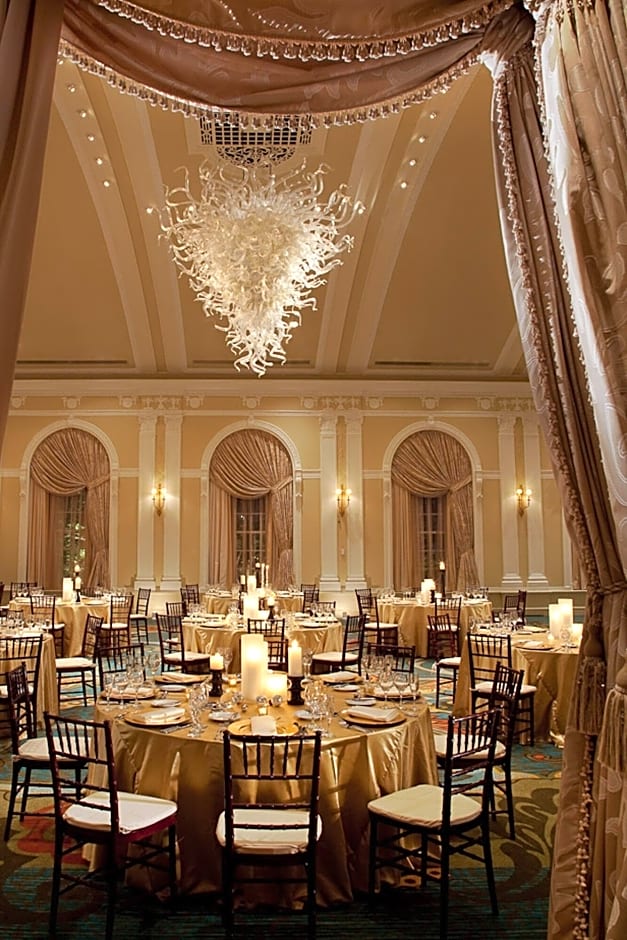Meaning
The name _Clarisse_ carries a rich historical tapestry woven from Latin roots and its evolution through centuries.
Originating from the Latin word *”clarus”* meaning ***clear*** or ***bright***, *Clarisse* embodies a radiant luminosity both in sound and meaning.
In ancient Roman culture, *clarus* held profound significance, associated with intelligence, purity, and even divine illumination.
The name likely emerged as a feminine form of *Clarus*, reflecting the qualities deemed desirable in women during that era – virtues like clarity of thought, moral uprightness, and an aura of enlightenment.
Over time, *Clarisse* transcended its Roman origins, finding resonance in various cultures and languages.
In France, it flourished as a popular name, often bestowed upon noblewomen who embodied the ideals of grace and refinement associated with the word *_clarus_* .
The name’s enduring appeal lies in its simple elegance and evocative symbolism. *Clarisse* continues to charm parents seeking a name that is both timeless and meaningful, carrying with it the legacy of ancient wisdom and luminous beauty.
Clarisse, a feminine given name, traces its roots back to the Latin word “clarus,” meaning “bright” or “clear.” This etymological connection immediately suggests an association with luminosity, transparency, and intelligibility.
The name’s history unfolds across various linguistic landscapes. In Latin, it was a common surname denoting someone from a place named Clarius or Clarus. Its journey continued as it evolved into the French “Claire,” which retains the core meaning of brightness and clarity.
The evolution from “Claire” to “Clarisse” marks an interesting shift. While both retain the core concept of light, “Clarisse” adds a layer of elegance and sophistication. It likely emerged as a more formal or ornate variation of “Claire,” mirroring broader trends in French naming conventions where adding “-ise” or “-isse” often imbued names with a refined quality.
Over time, the name “Clarisse” crossed linguistic boundaries, finding its way into English and other languages. In English, it has consistently held onto its association with clarity, purity, and intelligence, making it a popular choice for parents seeking a name that evokes these qualities.
The enduring appeal of Clarisse lies in its simplicity and its powerful connotations. It speaks to timeless values: the pursuit of knowledge, the desire for truth, and the appreciation of beauty and insight.
Origin
The name *Clarisse* is of Latin origin, derived from the word *clarus*, meaning “bright” or “clear.” It carries a sense of luminosity, intelligence, and purity.
During the Middle Ages in Europe, *Clarisse* enjoyed considerable popularity. This was likely due to its association with **Saint Clare**, a prominent figure in the Franciscan order of nuns. Saint Clare, born in Assisi in 1194, dedicated her life to poverty and service, embodying the values of humility and spiritual enlightenment.
The name *Clarisse* resonated with these ideals, becoming a common choice for girls among devout families. It was frequently bestowed upon daughters born within religious communities or those destined for a life of piety. Moreover, the name’s inherent beauty and elegance made it appealing across social strata.
The popularity of *Clarisse* reached its peak during the 13th and 14th centuries. It appears in numerous historical documents and literary works of the period, reflecting its widespread use. Over time, variations of the name, such as *Clara* and *Clarinda*, emerged, further testament to its enduring appeal.
Clarisse is a feminine given name with Latin origins.
It is the feminine form of the Latin name “Clarus,” which means “bright” or “clear.”
The name likely originated in ancient Rome, where it was associated with qualities like intelligence, clarity of thought, and luminosity.
Over time, Clarisse has been adopted and used in various cultures across Europe and beyond.
Here’s a look at the geographical spread of the name Clarisse:
- Europe: Clarisse is particularly popular in France, where it has been a traditional name for centuries.
- It’s also found in other European countries like Italy, Spain, Portugal, and Belgium.
- North America: Clarisse made its way to North America with European immigrants, particularly those from France and Italy. It remains a relatively uncommon name in the United States but has a presence in Canada as well.
While not as widespread as some other names, Clarisse maintains a certain elegance and charm.
Its Latin roots and association with brightness make it a name that continues to resonate with parents looking for something unique yet meaningful.
History
The name Clarisse has a rich history, with roots deeply embedded in Latin origins and evolving through various cultures over centuries.
Meaning:
At its core, Clarisse is derived from the Latin word “clarus,” meaning “bright,” “clear,” or “famous.” This root imparts a sense of luminosity, intellect, and distinction to the name.
Origin:
The name originated in ancient Rome as a feminine form of the Latin adjective “clarus.”
History:
- Early Usage: Clarisse was used as a given name in Roman times, with variations such as Clarissa and Clara.
- Medieval Popularity: The name gained traction during the Middle Ages, particularly in France. Saint Clare of Assisi (1194-1253), founder of the Poor Clares religious order, was a prominent figure who significantly contributed to its popularity.
- Renaissance and Beyond: Clarisse continued to be a cherished name throughout the Renaissance and into modern times, experiencing waves of popularity across Europe and beyond.
Notable Figures:
- Saint Clare of Assisi (1194-1253): A Catholic saint known for her piety, devotion, and founding of the Poor Clares order. Her life story and teachings continue to inspire millions.
- Clarissa Pinkola Estés (born 1940s): A renowned author, psychologist, and Jungian analyst famous for her groundbreaking work “Women Who Run with the Wolves”
The name Clarisse is of Latin origin, derived from the word “clarus,” meaning “bright” or “clear.” It has a rich history, appearing in various forms across different languages and cultures.
In ancient Rome, “Clarus” was a common masculine given name. However, its feminine form, Clarissa, gained popularity during the Middle Ages as a virtue name associated with wisdom, purity, and intelligence.
Throughout history, Clarisse has been borne by notable women in various fields. For example, Saint Clarisse of Rimini was a 13th-century Italian saint known for her piety and charity.
Literary representations further solidified the name’s association with grace and beauty. In Shakespeare’s “Twelfth Night,” the character Olivia refers to her own beauty as “clarion” – a play on the word “clarus.” This connection to light and luminosity has persisted in cultural representations.
Over time, variations of Clarisse emerged in different languages: Clara in Spanish and Italian; Claire in French; Klarissa in German. Each variation reflects the name’s enduring appeal and its adaptability across cultures.
In modern times, Clarisse remains a popular name choice, particularly in European countries. It carries with it a sense of classic elegance and timeless charm.
Clarisse is a feminine given name of Latin origin, derived from the Latin word “clarus,” meaning “bright” or “clear.”
Throughout history, the name has been associated with various meanings and connotations, reflecting cultural and linguistic shifts.
In ancient Rome, “Clarus” was used as both a masculine and feminine noun, often denoting clarity, brilliance, or fame.
It was also a common surname for prominent Roman families, highlighting its association with prestige and nobility.
The name Clarisse first gained popularity in France during the Middle Ages.
It became associated with the Christian saint Clare of Assisi (c. 1194-1253), a key figure in the Franciscan order.
This association solidified the name’s religious and virtuous connotations.
During the Renaissance, Clarisse continued to be a popular name throughout Europe, especially among aristocratic families.
Its connection to beauty, intelligence, and virtue made it a highly desirable choice for parents.
In the 19th and early 20th centuries, the name saw a surge in popularity across various countries, including England, Spain, Italy, and Germany.
Its timeless elegance and association with strong female figures continued to resonate with generations of parents.
Today, Clarisse remains a cherished name, carrying with it a rich history and a legacy of beauty, clarity, and strength.
- Best Dun & Bradstreet (DNB) Alternatives for 2025 - April 26, 2025
- Best Seamless.ai Alternatives for 2025 - April 26, 2025
- Best Leadfeeder Alternatives for 2025 - April 25, 2025


